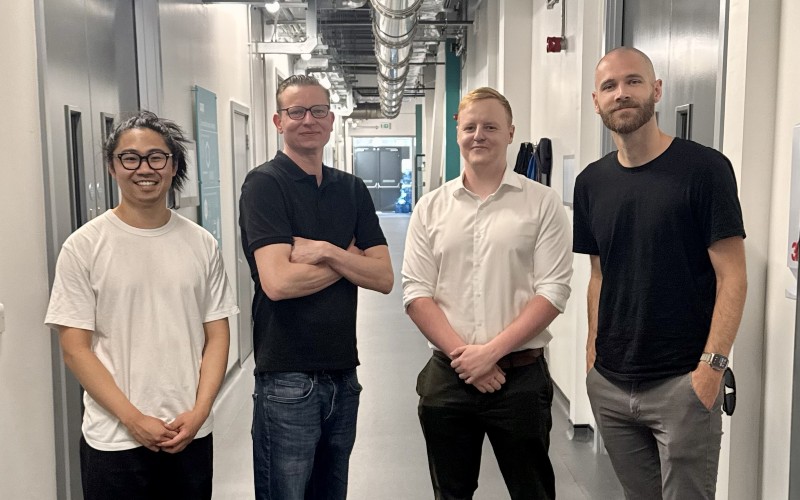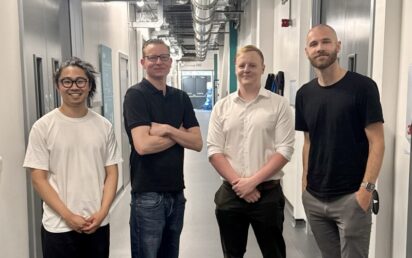A University of Manchester spinout developing optical sensor technology has raised £4m in seed funding to launch its first product and expand its team.
PhovIR, which was founded by Dr Tim Echtermeyer and is based at the university’s Graphene Engineering Innovation Centre (GEIC), has created a portable sensor that uses near infra-red (NIR) light to identify the unique ‘optical fingerprint’ of solids, liquids and gases.
The technology captures a much broader part of the light spectrum than the human eye can detect, offering real-time analysis of materials and substances.
Manchester-based DeepTech investment firm Northern Gritstone co-led the round alongside specialist investor SCVC.
The startup recently completed NG Studios – Northern Gritstone’s pre-seed accelerator programme focused on preparing science and technology spinouts for scale.
The fund, chaired by Lord Jim O’Neill, has made 37 investments in early-stage Northern businesses since launching in May 2022.
Broadridge Signals European push as it acquires Cheltenham firm
“This is a Northern Gritstone NG Studios graduate,” said Duncan Johnson, CEO of Northern Gritstone. “The University of Manchester is home to innovation in materials science including graphene.
“Northern Gritstone is delighted to back Dr Tim Echtermeyer and Dr Steve Turley – graduates of our NG Studios venture building program – knowing that PhovIR’s technology has the potential to create a global company.”
The innovation is described as a platform technology with a wide range of potential applications, from detecting drink spiking and contaminants to monitoring pollution, ensuring industrial safety and enabling smarter agriculture.
While NIR sensors are not new, existing devices tend to be large, costly and hard to integrate into portable formats.
PhovIR’s breakthrough lies in miniaturising the technology onto a silicon chip, making it lightweight, scalable and cost-efficient enough to fit into wearables like smartwatches and phones.
Using MEMS (micro-electro-mechanical systems) and customisable software, PhovIR has developed a portable system that replaces multiple sensors and can be produced at scale.
Echtermeyer added: “I am exhilarated to enter the next part of PhovIR’s journey and turn our vision into reality.
“I am grateful to the many people contributing and making this happen; particularly Steve, and William Wren and Minh Vu from the engineering team, who have worked relentlessly.”
PhovIR will also use the funding to build towards its mission of ‘making the invisible visible’ to improve human and planetary health.


